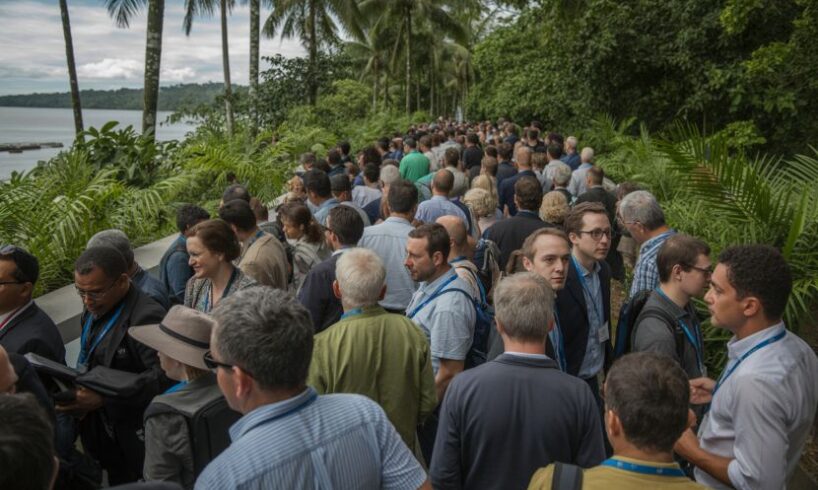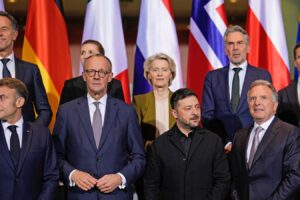
Home » TOURISM NEWS » From Belém to the Amazon River: Lula’s Struggle to Secure Brazil’s Climate Leadership While Promoting Economic Growth and Tourism
Published on
November 9, 2025
Brazil, as the world’s largest tropical rainforest and a key player in global environmental efforts, is facing significant challenges in reconciling its economic aspirations with its environmental responsibilities. At the centre of this balancing act is President Luiz Inácio Lula da Silva, whose administration is simultaneously promoting oil exploration and pushing for environmental conservation. As Brazil hosts COP30 in the Amazonian city of Belém, these conflicting goals will be put to the test, placing Lula’s climate legacy under global scrutiny.
With tensions between the pursuit of oil and the protection of Brazil’s precious forests, Lula’s leadership is proving complex. While his government has succeeded in reducing deforestation rates by 50%, his policies—especially regarding oil exploration near the Amazon River—have ignited controversy. The outcome of COP30 may define Brazil’s future role as an environmental leader, especially as it faces the demands of both international diplomacy and domestic economic pressures.
Lula’s Dual Approach to the Climate Crisis: Oil, Agriculture, and Conservation in Brazil
Lula’s environmental policies have stirred both support and criticism. On one hand, Brazil has made strides in reducing Amazon deforestation by 50% since Lula’s return to office. On the other, the president’s willingness to approve oil drilling near the Amazon River, alongside plans to pave the controversial BR-319 highway, has sparked concerns among environmentalists. These initiatives represent a clear contradiction in his climate policy: while positioning Brazil as a global environmental champion, he is also embracing industries that contribute significantly to climate change.
Despite these contradictions, Lula remains adamant that the revenue generated from oil exploration will finance Brazil’s transition to renewable energy. This dual approach—relying on fossil fuels to fund green initiatives—poses a significant challenge for environmental activists who argue that such steps delay the much-needed transition to a cleaner economy.
COP30 in Belém: A Global Stage for Brazil’s Climate Diplomacy
The COP30 summit, hosted in Belém, will likely be a turning point for Lula’s environmental policies. The Amazon, the world’s largest rainforest, is a key focal point in global efforts to combat climate change. As global leaders and environmental advocates gather in Belém, Brazil is positioning itself at the heart of climate talks, aiming to solidify its role as a critical player in environmental diplomacy. However, the summit also highlights the dilemmas Lula faces, including the tension between advancing Brazil’s green agenda and fostering economic growth.
For Lula, the stakes are high. As host of COP30, Brazil is under pressure to lead by example. Lula’s administration has introduced initiatives such as the Tropical Forest Forever Fund, which aims to fund forest conservation through international investment. However, the fund’s target has been slashed by 60%, and the support from international partners has been less than expected. This could undermine Lula’s position on the global stage, making it harder to secure binding agreements that would protect the Amazon and other crucial ecosystems.
Brazil’s Economic Growth vs. Climate Preservation: The Road Ahead
The Brazilian economy, which heavily relies on agriculture and natural resource extraction, faces the delicate task of balancing growth with sustainability. The country’s agricultural sector, particularly cattle ranching, is a major driver of deforestation in the Amazon. To address this, the Lula administration is making efforts to ensure that beef production is traceable to reduce illegal deforestation. However, the slow pace of these reforms and the entrenched political power of agribusiness in Brazil make rapid progress challenging.
Adding to this complexity is the role of Petrobras, Brazil’s state-owned oil company. Petrobras is central to Brazil’s oil industry, and under Lula’s leadership, the company is set to expand its exploration into ecologically sensitive areas, including the Amazon River’s mouth. This move has raised concerns that Lula’s green credentials may be undermined, with critics warning that oil production will prolong Brazil’s reliance on fossil fuels, making the transition to renewable energy even more difficult.
How COP30 Can Shape Brazil’s Environmental Legacy
The outcomes of COP30 will have lasting implications for Brazil’s environmental and economic future. While Lula’s government has achieved notable successes in reducing deforestation, much more needs to be done to secure lasting environmental gains. Brazil’s leadership role in global climate talks depends on its ability to reconcile the demands of economic growth with the need for environmental protection.
One of the key areas where Brazil could lead is in the development of a carbon market that incentivizes the preservation of the Amazon. This market could provide a sustainable economic alternative to deforestation by generating income from carbon credits. However, the challenges of scaling up this market remain significant, especially as Brazil struggles to mobilize the necessary resources.
Lula’s decision to focus on both economic and environmental priorities will be tested at COP30, where negotiations will determine whether global commitments to combat climate change are strengthened or undermined. As the world turns its attention to Brazil, the question remains: Can Brazil truly be a climate leader while also embracing the industries that contribute to the very crisis it seeks to address?
What This Means for Tourists Visiting Brazil
For travelers interested in exploring the Amazon and understanding Brazil’s environmental challenges, Belém offers a unique opportunity. The city itself is rich in culture and history, and visitors to COP30 will have the chance to witness firsthand the ongoing efforts to balance development with environmental preservation. For those exploring the Amazon, it is crucial to be aware of the delicate ecosystem and the challenges it faces due to deforestation and industrial development.
Travelers can take guided tours of protected areas in the Amazon, where they can observe the wildlife and plant life that are integral to the region’s ecosystem. Understanding the environmental significance of the Amazon during COP30 will provide visitors with a deeper appreciation of Brazil’s role in the global climate conversation. It’s also an opportunity to engage with local communities and activists working to safeguard the rainforest, offering a more nuanced view of the country’s ongoing environmental and economic struggles.
Final Thoughts: Can Brazil Lead the Climate Charge?
As COP30 unfolds in Belém, Brazil finds itself at a crossroads. The country’s efforts to protect its vast rainforests while driving economic growth are under intense scrutiny. Lula’s administration has made notable strides in reducing deforestation, but challenges remain. Brazil must navigate these complexities, balancing the need for economic development with its role in global environmental leadership. The outcome of COP30 will determine whether Brazil’s environmental and economic ambitions can coexist or if tensions will continue to hamper progress.





